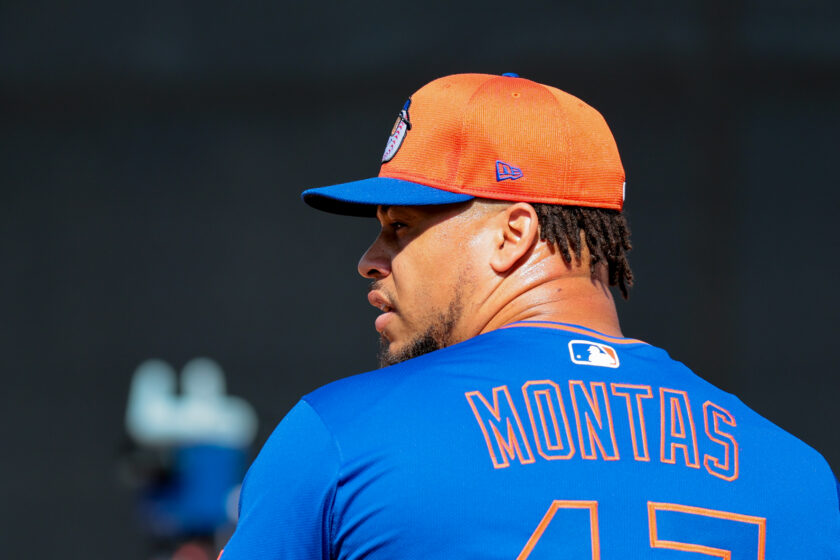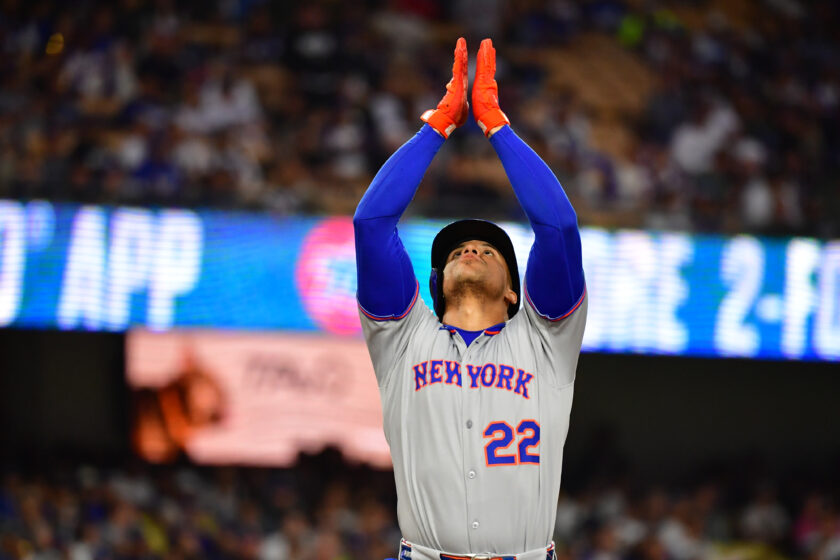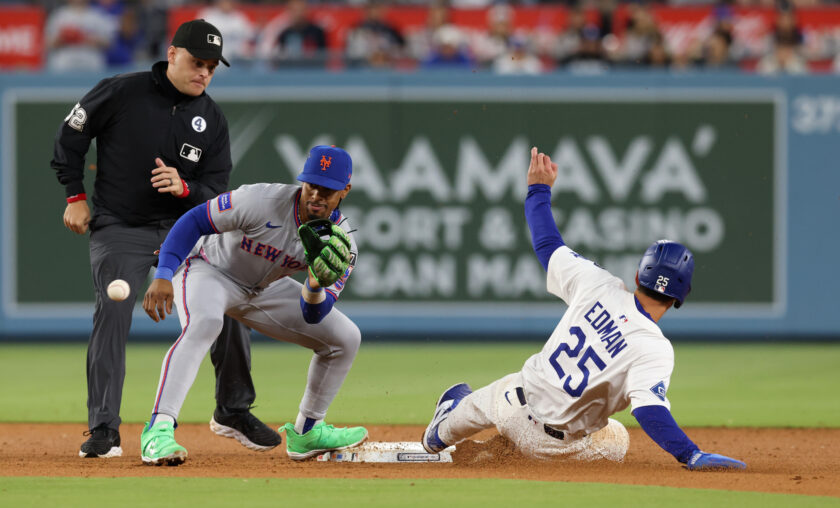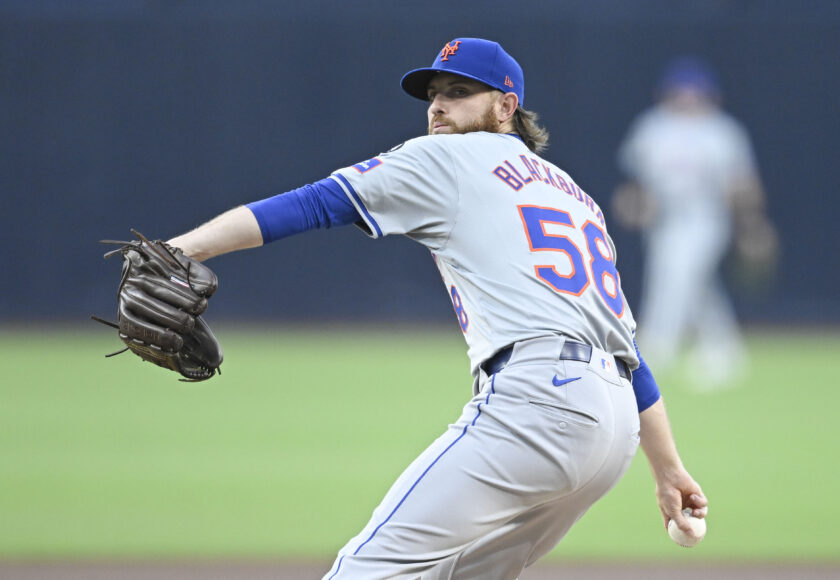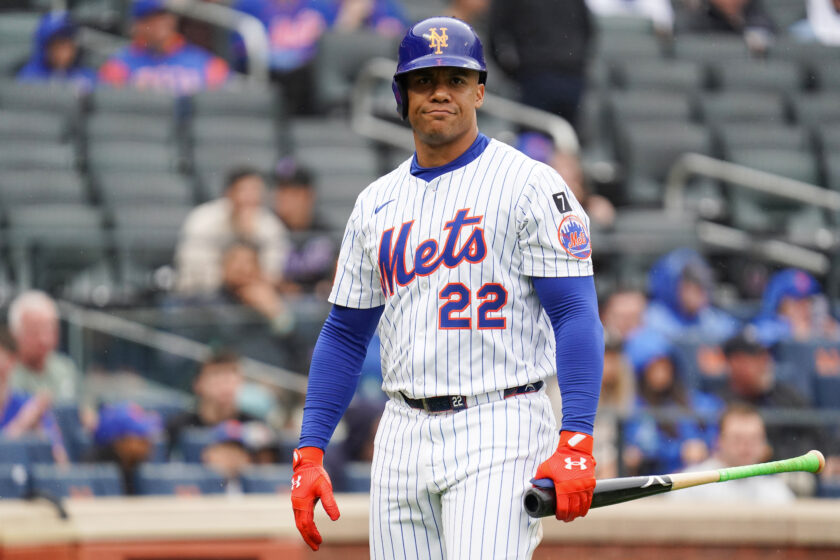Why Yoenis Cespedes Would Be Insane To Not Opt Out Of His Contract
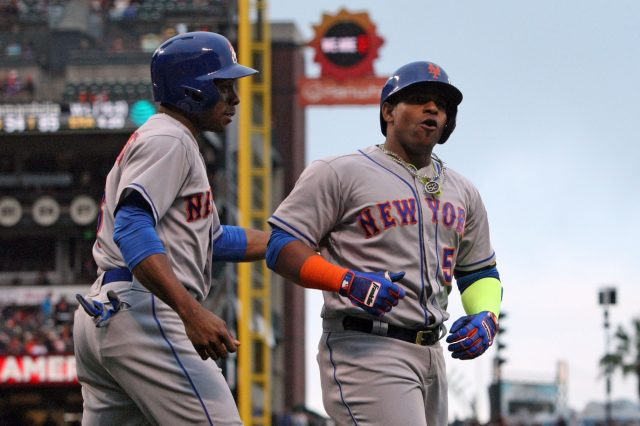
Yoenis Cespedes better think twice about that opt out clause – because it’s insane to think he won’t use it.
Insane (adj.) – in a state of mind that prevents normal perception, behavior, or social interaction.
Hyperbolic?
Perhaps.
Even still, to characterize Yoenis Cespedes’s potential decision to waive his opt-out clause as insanity’s textbook definition – is actually reasonable.
(Disclaimer: this is by no means a piece which disputes the true value of money, and whether or not its degree of influence over people’s life decisions is justified, nor is it a commentary on the meaning of life.)
It is, though, a practical analysis on just how much gold Cespedes can strike if he tests free agency.
You should then, following that analysis, be able to understand the disparity between the guaranteed money and yearly coverage a free agent contract would yield Cespedes compared to that of his remaining two years and $47.5 million on his current deal.

Again, Cespedes’s deal with the New York Mets – signed last winter – would amount to $47.5 million over the next two years. So, by not exercising the opt out clause, he will effectively sign a two-year deal.
You know what type of players sign two-year deals these days?
Relief pitchers, veteran utility-type players, and aged starters are prime meat for those juicy two years of guaranteed money. I’m talking about guys like Antonio Bastardo, Jonathan Broxton, Chad Qualls, John Jaso, and Mike Pelfrey – just to name a few from last year’s free agent class.
Hands down, players with talent even in the relative ballpark of Cespedes do not stoop to such deals.
In assessing the last five free agency periods (2011-2016), there isn’t a name to be found with a comparable profile to Cespedes who settled for two years. But to provide some historical context, here’s the best hitter to sign a two-year deal in the last half decade (when he signed it, of course): Mike Napoli.
Napoli, entering his age-32 season in 2014, inked a two-year, $32 million deal with the Red Sox following three straight seasons with an OPS over .800 and an All-Star appearance the previous year.
Yet he never hit more than 30 home runs in those seasons, something Cespedes is all but a lock to do for a second straight year (Cespedes’ OPS, mind you Mike, has been well over .900 the past two seasons). Additionally, Napoli never drove in more than 75 runs over that time frame.
The comparison of Napoli to Cespedes is radically unbalanced; even the best player to sign a two-year deal in recent history was well behind Cespedes’s current production. Thus, rest assured, Cespedes is no comparison to that bargain deal and will hypothetically sign nothing close to it.
Then there’s the factor of the market. Understanding it comes down to simple supply and demand.
Here’s your abbreviated version of Economics 101: when the supply is low (Cespedes joins Jose Bautista and Josh Reddick in the top outfield tier this offseason), and the demand is high (most contending teams could use a potent outfield bat), the price will be high.
Yoenis Cespedes figures to be the only player to receive a contract in excess of $100 million, considering Jays’ sluggers Bautista and Edwin Encarnacion’s age (36 and 34, respectively, when free agency begins) and the very fact that the next best free agent is Josh Reddick, a guy whose career slash line is an uninspiring .253/.314/.429.
Whether it’s via free agency or a second re-up with the Mets, Cespedes will get paid. Surely, he will get paid handsomely, and he will get paid over a range of five or six years.
The 31-year old Cespedes could also have earning power in mind, and it’s hard to believe – even with his recent comments made public – that he wouldn’t test free agency.
Guaranteed money over the long term will be staring the man right in the face. The thought that he’d spurn such a perfect picture in favor of only two years of guaranteed money to test free agency two years later – when he’ll be 33 – is a bit unrealistic.
Because if you know anything about sports, it’s about as rare as an unassisted triple play to see a player make a decision which is not a fiscal maximization (see: rise of sports agents) in his interest.
Logically speaking, the idea that Yoenis Cespedes would not opt out to make good on his value is downright nonsensical.
So don’t count on it happening, Mets fans.
NEXT: It Would Be Foolish To Give Up On Jay Bruce
"Either write something worth reading or do something worth writing."
-Benjamin Franklin


